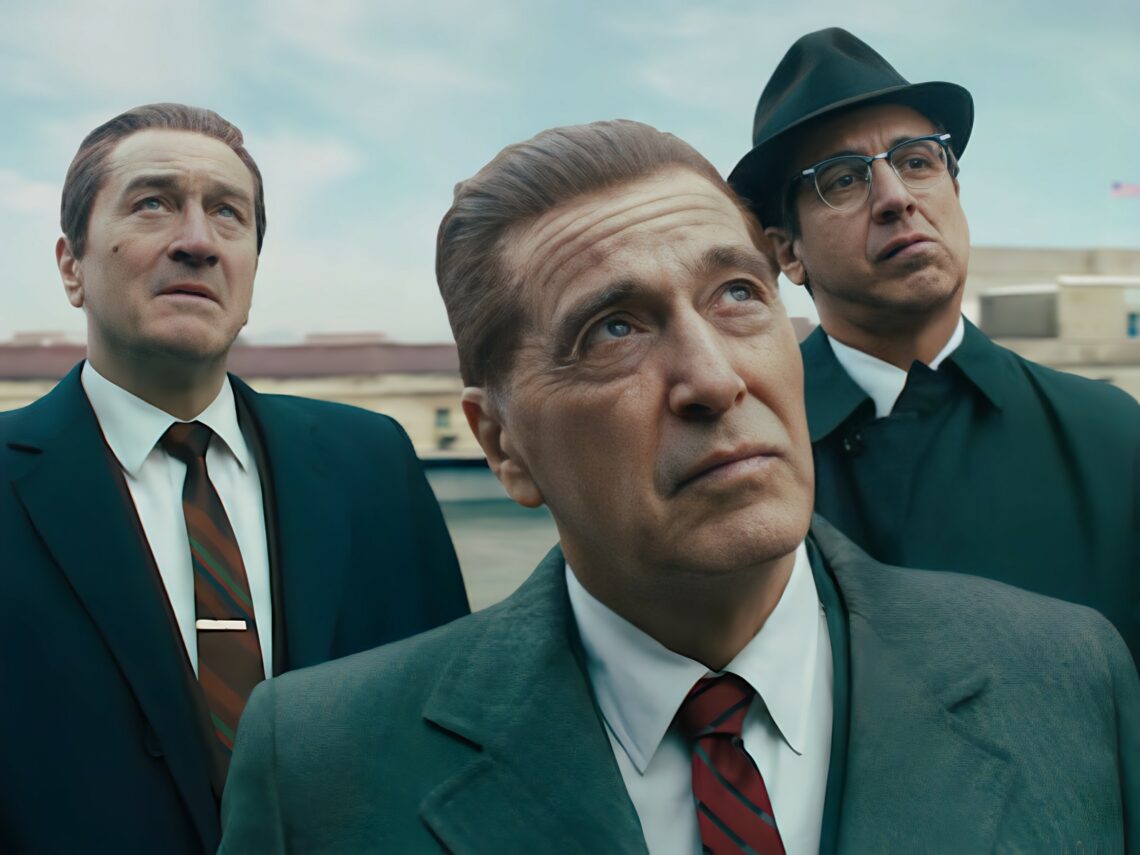
‘The Irishman’ explained: Why does Frank kill Jimmy Hoffa?
The Irishman was almost certainly Martin Scorsese’s last outing with longtime collaborator Robert De Niro. And what a way to finish, with an epic crime drama featuring the director’s trademark improvisational flair, which gathered together an all-star cast of gangster-playing masters.
Alongside De Niro, Scorsese’s other chief acting acolytes Joe Pesci and Harvey Keitel have their moments. But the real show-stealer is Al Pacino, as power-hungry trade union boss Jimmy Hoffa. As Hoffa, Pacino’s larger-than-life approach to acting takes on a new dimension, as he plays a megalomaniac with the largest labour syndicate in the United States in the palm of his hand.
Yet Hoffa is out of his depth when it comes to the criminal underworld he drags his union into. He might be the top of the tree among his workers, among the made men of the mafia he’s small-fry, and his reckless behaviour sees him continually rising above his station. Pacino strikes the balance of ruthlessly corrupt union bigshot and naive pawn in a mobster’s game beautifully, aided by a quietly emotive central performance from Robert De Niro as titular Irishman Frank Sheeran, who has one foot in each camp.
At the start of the three-hour epic’s final act, Frank is given some news no gangster wants to hear. “We’re gonna take a ride up to Port Clinton today,” his mob superior Russell Bufalino, played by Pesci, tells him over breakfast. “We’ll be back — three hours tops.” Frank feels like he knows what’s coming. “It’s gonna happen,” Bufalino says. “He’s going.”
Frank understands perfectly who is going where. He’s been assigned the job of killing Hoffa, his friend and mentor in the Teamsters union. “We tried everything to help him,” Bufalino reasons. “He brought this on himself, and it’s landing on us.”
But what’s Hoffa done to get whacked?
While running for president of the Teamsters, Jimmy Hoffa undermined his relationship with the mafia by accusing his rival of the position of having “underworld pals” on national television. Hoffa revealed to the American public the “billion dollars” that the mob had taken out of the union in loans for their own “illegal enterprises”. This act was enough to make Tony Salerno, the underboss for the Genovese crime family in New York, demand that Hoffa stood down from the election.
Not only did Hoffa refuse, but it became clear that he was blocking further loans from going out to the mob via the union’s pension trustees, and planned to requisition their hotels, casinos and other businesses if he became president. When Bufalino and Frank confront him about his antagonistic behaviour towards the mobsters who helped him take control of the Teamsters, he simply replies, “This is my union.”
Frank arranges a meeting between Hoffa and Genovese caporegime Tony Pro at the wedding of Bufalino’s granddaughter, to “straighten things out” and give the union leader one last chance to back down from his sabotage of the mob’s activity with the Teamsters. He doesn’t turn up to the wedding, and this final insult seals his fate.
Wracked with guilt, Frank is forced to kill Hoffa, and then comfort the wife of the man he’s murdered once he’s confirmed missing. Jimmy Hoffa has never been found. His legacy casts a long shadow over the International Brotherhood of Teamsters, which originally rose to prominence off the back of heroic labour struggles in the 1930s. Hoffa played his part in these struggles across the American midwest.
But his role as syndicalist pales into insignificance next to the story of his involvement with organised crime. A story that, for Scorsese, De Niro and Pacino, was 35 years in the making.